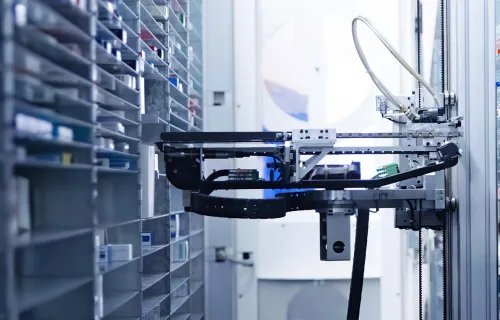From helping clients reduce waste in steel production to reducing energy consumption and emissions in brick production, we apply data-driven insights to advance a digital and green future.
Industry 5.0 objectives are ushering in a new era for sustainable and human-centric manufacturing. This reflects increasing pressure from customers, regulators and investors to cut greenhouse gas (GHG) emissions, such as CO2, and adopt more sustainable practices.
As manufacturers move to integrate their plants, value chains and wider ecosystem to become more responsive to stakeholder demands, data-driven decisions are helping manufacturers achieve sustainability targets and reduce waste. We partner with clients to navigate and seize opportunities for change.
Reducing steel waste at Uddeholm with machine learning
Steel manufacturers face a vexing problem. They cannot assess the quality of the finished product until the end of the manufacturing process, at which point they may discover cracks leading to wasted time, energy and money. Together with Uddeholm, we developed a high-powered machine learning model that could predict—with over 70% accuracy—where and when cracks would occur. Uddeholm is now able to adjust its manufacturing process to reduce the waste associated with cracked steel.
Cutting energy usage in brick production with process optimization
Together with SAS, we help one of the world’s largest brick producers optimize their manufacturing plant in Poland by analyzing data from different process systems. Working with the client, a joint team of experts built a model to improve process forecasting to minimize energy consumption and emissions for energy-intensive processes. This intelligent process optimization approach reduced energy consumption. Future models will be used to further reduce consumption through data-driven optimization while maintaining product quality.
Working to enable 90% reductions in CO2 footprints of products as a Catena-X member
We actively participate in the circular economy product team of Catena-X, the automotive industry alliance creating an open and secure data ecosystem to increase supply chain transparency. Along with our partners, we are developing a “product passport” to help users visualize and analyze the life cycle of materials of products and achieve a high level of transparency with regard to compliance with social and environmental protection standards.
We aim to provide this solution “as a service” to integrate OEMs, suppliers and recyclers to help reduce the CO2 life cycle footprint of products by up to 90%.
Optimizing SABIC’s performance to increase efficiencies, agility and sustainability
To accelerate chemical manufacturer SABIC’s digital transformation, we will develop, manage and modernize all their core manufacturing applications. As part of the engagement, we will also provide analytics and consulting services to minimize yield loss and reduce the amount of waste generated in the plastic manufacturing process. Customized dashboards will enable SABIC to reduce the amount of energy consumed in the production process.
Enabling the future of data-driven manufacturing
Unified Manufacturing is our vision for the future of the industry. It aims to unify manufacturers within their plants, across people, processes, technologies and ecosystems to become more adaptive and responsive to stakeholder demands.
Data-driven manufacturing is one of the core building blocks of our Unified Manufacturing approach. By building and executing a comprehensive data strategy aligned with an organization’s values and business objectives, manufacturers can unlock the true power of data. From optimizing operations through enhanced monitoring and pre-emptive action to inspiring new revenue streams through insight-led innovation, becoming truly data-driven empowers manufacturers to take the appropriate actions in moving toward a green and sustainable future—with transparency, accuracy and purpose.




